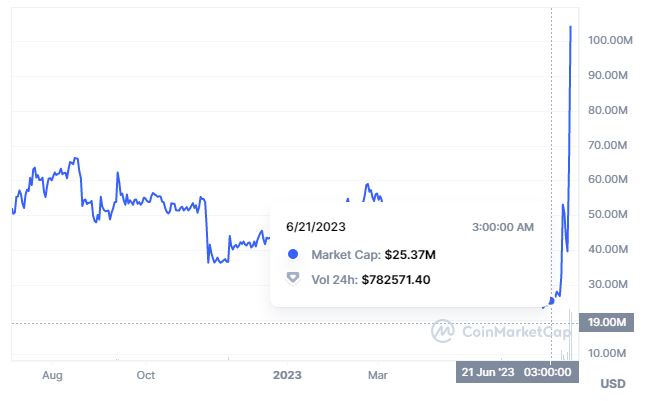- At press time, the price of XVG token had soared 295% over the past seven days.
- The token was trading at $0.006906.
- The Verge’s market cap has also gone up by almost 400% over the past three weeks.
What started as a slow steady bull case for the Verge (XVG) token has turned into a monster Bull Run after the token price went up by about 300% on June 3. And although the price has slightly pulled back from the June 3 high, it is still 295% high compared to where it was seven days ago.
Verge was long considered dead after it drastically dipped at the beginning of 2023 at a time when most of the cryptocurrencies showed some signs of recovery from the 2022 bear market. However, all that started to change in mid-June when the current bull trend started.
 Verge (XVG) price chart. Source Coinmarketcap
Verge (XVG) price chart. Source Coinmarketcap
While the Verge investors and traders are excited about the current bull case for the token, most crypto investors are still sceptical about the upward movement as questions of why the token is taking a ride ringer. In this article, we shall explain why the Verge (XVG) token price is rising.
Increased Verge (XVG) activity
In addition to the price surging, the Verge has also experienced an increased trading volume, which skyrocketed by a staggering 380% on June 4 to a record $507 million. And although the trading volume had dropped to $480 million at press time, the figure still shows there is still a high trading activity.
In addition to the increased market activity, there are speculations of possible manipulation by seasoned cryptocurrency investors otherwise known as crypto whales who could be angling to dispose of their large XVG holdings at a profit. While this is not confirmed, it is important to be careful when trading cryptocurrencies since they are extremely volatile assets.
The post Why is the Verge (XVG) price soaring? It’s up 295% appeared first on CoinJournal.

